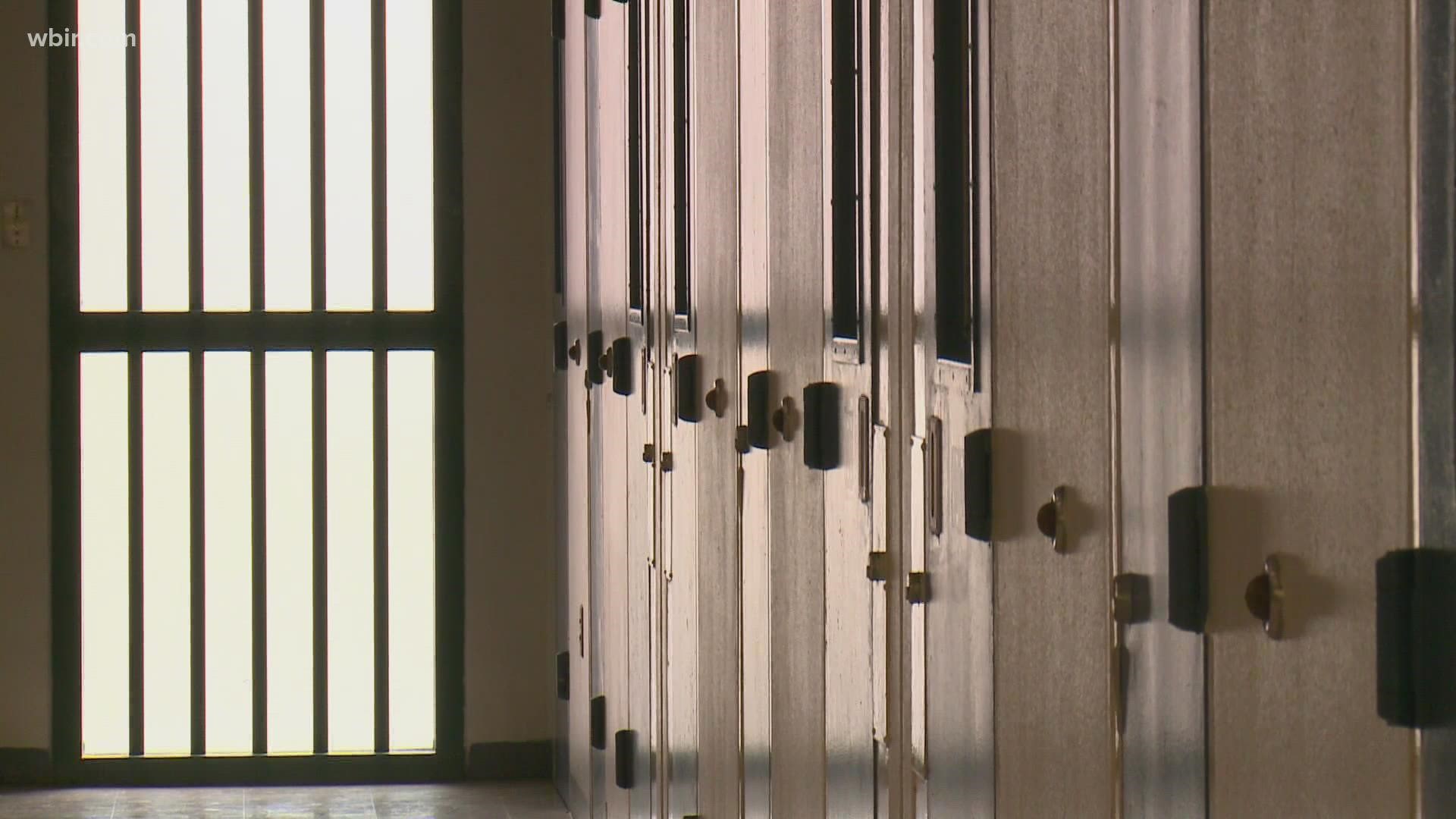KNOXVILLE, Tenn. — Knox County Mayor Glenn Jacobs called for the establishment of a special judicial program to divert crime suspects struggling with mental illness to treatment instead of a jail cell at his annual budget address Thursday.
The so-called "mental health court" would help participants, ease the burden on jailers and save taxpayers money, Jacobs argued.
He estimated a third of all inmates at the detention facility suffer from mental health issues — and said county taxpayers spend $300,000 on psychotropic medication to treat them every year.
"It’s unfair to the people struggling because they’re not getting the help they need, it’s unfair to our deputies and jailers because they’re thrust into difficult situations because of a systemic failure," Jacobs said.
McNabb Center CEO Jerry Vagnier said such a court would be "a terrific addition to our community." It would work much the same as the current drug court program.
"So in our world, that is monitoring their medication, monitoring their attendance to appointments, effectively engaging with the care that’s required," Vagnier said.
"The criminal justice system really was not set up to deal with mental health issues, it was set up to deal with crime," Knox County District Attorney General Charme Allen said. "It's a win-win for everyone."
The establishment of a court-based diversion program, however, is easier said than done.
"You need a good judge, you need a good mental health care provider and you need it to adequately funded so the individual involved whether they have the ability to pay for care or not are going to get the care they need," said Vagnier.
Tennessee lawmakers budgeted more than $5.6 million this legislative session to create programs to facilitate the implementation of new mental health courts in every county in the state. That funding could prove crucial in starting a court in Knox County.
But Allen said determining who qualifies for mental health court — and how it works — can be complicated.
The people eligible for the court are entitled to fair treatment in the judicial process, have defense attorneys and often face charges of committing crimes against someone else.
"Those crime victims also have a say and also have rights in determining what should happen," Allen said.
Jacobs has set up a committee to evaluate how to best implement a court in Knox County. There is no public timeline for when the process of establishing a court might begin.

